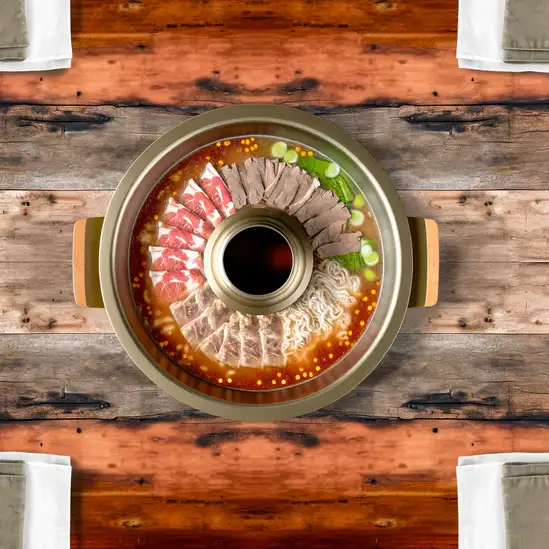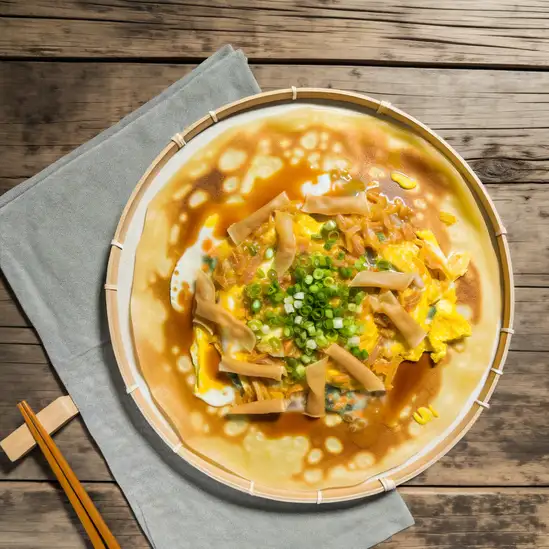


Beijing feels like stepping into a living tapestry where ancient history and modern energy pulse side by side. The moment you arrive,you’re wrapped in a vibrant hum—the chatter of street vendors,the clatter of bicycles weaving through alleys,and the distant echo of temple bells. The air carries a mix of aromas:sizzling dumplings from a nearby stall,fragrant jasmine tea,and the faint scent of incense drifting from a centuries-old courtyard. It’s a city that invites you to slow down and soak in its layers. Walking through Beijing,you’ll find yourself wandering from the grandeur of the Forbidden City’s crimson walls to the quirky art galleries tucked inside the 798 District’s industrial ruins. The city’s character is a blend of proud tradition and bold reinvention. Locals move with purpose but always have time to share a smile or a story over a steaming bowl of hand-pulled noodles. At night,the neon lights flicker to life,casting a warm glow over hutongs where laughter spills from open windows and the clinking of mahjong tiles fills the air. What makes Beijing truly unforgettable is how it feels alive in every sense—whether you’re tasting the smoky sweetness of Peking duck,feeling the rough stone steps of the Great Wall beneath your hands,or simply watching the sunset paint the skyline behind the Temple of Heaven. It’s a city that stays with you,inviting you back to discover its next secret.
The information on this page is currently being reviewed by Tripkliq and should be used as a guide only
Eng word: Hello
Eng pronunciation: nǐ hǎo
Local language: 你好
Eng word: Goodbye
Eng pronunciation: zài jiàn
Local language: 再见
Eng word: Thank you
Eng pronunciation: xiè xiè
Local language: 谢谢
Eng word: How much
Eng pronunciation: duō shǎo qián
Local language: 多少钱
Eng word: Toilet
Eng pronunciation: cè suǒ
Local language: 厕所
Eng word: Help me
Eng pronunciation: bāng bāng wǒ
Local language: 帮帮我
Eng word: Yes
Eng pronunciation: shì
Local language: 是
Eng word: No
Eng pronunciation: bù shì
Local language: 不是
Eng word: Excuse me
Eng pronunciation: duì bù qǐ
Local language: 对不起
Constructed from 1406 to 1420, the Forbidden City served as the imperial palace for 24 emperors during the Ming and Qing Dynasties. Today, it is one of the most preserved ancient architectural complexes in China and a UNESCO World Heritage site.
Beijing is home to several sections of the Great Wall of China, including the Juyongguan Pass. This section, known for its strategic importance and breathtaking landscapes, has a history dating back over 2,000 years and showcases the ingenuity of ancient Chinese engineering.
Constructed in 1420 during the reign of the Yongle Emperor, the Temple of Heaven is a stunning example of Ming Dynasty architecture. It was used by emperors for annual ceremonies of prayer to Heaven for a good harvest.
An imperial garden during the Qing Dynasty, the Summer Palace is renowned for its beautifully designed landscape and the enchanting Kunming Lake. It is considered a masterpiece of Chinese garden design.
Hutongs are narrow lanes or alleyways, and Beijing's hutongs have become emblematic of the city's culture. They illustrate the lifestyle of ordinary Beijing residents throughout centuries and are a window into the city's traditional way of life.
This archaeological site, located about 50 kilometers from Beijing, is where remains of Homo erectus, known as Peking Man, were discovered. These findings, dating back approximately 750,000 years, provide significant insights into prehistoric human societies.
Historically, Beijing was a major hub in the network of the Silk Road, facilitating trade and cultural exchanges between the East and the West. This contributed significantly to the city's prosperity and development.
Located near Beijing, the Ming Tombs are a collection of mausoleums built by the emperors of the Ming Dynasty. The site, with its ancient statues and grand architecture, reflects the architectural and cultural achievements of that era.
Although largely destroyed in the 19th century, the ruins of the Old Summer Palace, or Yuanmingyuan, are a poignant reminder of China's imperial past and the cross-cultural interactions through Jesuit-designed European-style palaces and gardens.
In Beijing, the most common Power Adaptor is Type A, Type C, Type I.







A famous dish that originated in Beijing, Peking Duck is a crispy duck dish typically served with thin pancakes, scallions, and hoisin sauce.

A popular communal dining experience, hot pot involves cooking a variety of meats, vegetables, and noodles in a simmering pot of broth at the table.

A noodle dish topped with a savory sauce made from ground pork or beef, soybean paste, and vegetables, Zhajiangmian is a staple in Beijing cuisine.

A popular street food, Jianbing is a savory crepe made with a batter of wheat and mung bean flour, filled with egg, crispy fried wonton, scallions, and a sweet and savory sauce.
If you ever find yourself craving a place where the sea breeze mingles with the hum of lively streets,Qingdao is where you want to be. This coastal city has a laid-back charm that feels both refreshing and invigorating. Imagine walking along the waterfront,the salty air brushing your face as fishing boats bob gently in the harbor. The sound of seagulls overhead blends with the distant clinking of glasses from cozy seaside cafes. It’s a place where the ocean’s rhythm seeps into everyday life,making even a simple stroll feel like a mini escape.
Qingdao’s character is a fascinating mix of old and new. You’ll spot red-tiled roofs and German colonial architecture standing proudly alongside sleek modern buildings. The city’s history whispers through its streets,especially in areas like Badaguan,where each villa tells a story. But it’s not just about looks—Qingdao pulses with a vibrant culture. The local markets buzz with vendors selling fresh seafood that’s so fresh you can almost taste the ocean in every bite. And speaking of taste,you absolutely have to try the famous Qingdao beer,brewed right here,which pairs perfectly with grilled clams or spicy street snacks.
What really makes Qingdao stick with you is its warmth—the friendly smiles of locals,the casual conversations over tea,and the way the city invites you to slow down and savor the moment. Whether you’re wandering through fragrant pine forests or watching the sunset paint the sky over May Fourth Square,Qingdao feels like a place that welcomes you home,even if just for a little while.
Imagine stepping into a place where the ocean breeze carries a hint of salt and tropical flowers,and the sun seems to linger just a little longer on your skin—that’s Sanya. Nestled on the southern tip of Hainan Island,this city feels like a warm embrace from the moment you arrive. The rhythm here is relaxed but alive,with palm trees swaying gently against a backdrop of turquoise waters and soft,sandy beaches that stretch endlessly. It’s the kind of place where mornings start with the chatter of fishermen unloading their catch and the scent of fresh seafood mingling with the salty air.
Walking through Sanya’s bustling markets,you’ll hear the lively calls of vendors selling exotic fruits and spices,while the aroma of grilled satay and tropical fruits like lychee and mango tease your senses. The city’s culture is a vibrant blend of traditional Li and Miao ethnic influences mixed with modern coastal charm,giving it a unique character that’s both authentic and inviting. You can feel the warmth not just from the sun but from the locals,who are genuinely friendly and eager to share their stories.
Whether you’re wandering along the palm-lined streets,diving into crystal-clear waters,or savoring a bowl of freshly caught seafood at a beachside shack,Sanya invites you to slow down and soak in its easygoing spirit. It’s a place that stays with you long after you leave,whispering promises of sunlit days and starry nights.
Imagine stepping into a place where the ocean breeze carries the scent of salty waves mingled with the sweet aroma of blooming frangipani. That’s Xiamen for you—a coastal city that feels like a gentle hug from the sea itself. Walking along the palm-lined streets,you’ll hear the rhythmic chatter of locals and the distant hum of fishing boats returning with the day’s catch. The city pulses with a laid-back energy,a perfect blend of old-world charm and modern vibrancy.
What really makes Xiamen stand out is its unique mix of cultures. The colonial-era architecture on Gulangyu Island,with its pastel-colored mansions and winding lanes,invites you to wander and get lost in stories whispered by the walls. Meanwhile,the bustling markets and street food stalls on the mainland offer a sensory feast—imagine biting into a freshly made oyster omelet,the flavors rich and briny,or sipping on a cup of fragrant jasmine tea while watching the world go by.
Xiamen’s character is warm and welcoming,with a rhythm that encourages you to slow down and savor the moment. Whether you’re cycling along the scenic coastline,exploring quaint temples tucked away in quiet corners,or simply sitting by the water as the sun dips below the horizon,there’s a peacefulness here that stays with you long after you leave. It’s a city that invites you to breathe deeply,taste boldly,and feel truly alive.
Jeju City has this effortlessly laid-back vibe that instantly makes you want to slow down and soak it all in. Imagine stepping off the plane and being greeted by the salty breeze mixed with the faint scent of tangerines from nearby orchards. The streets hum softly with the chatter of locals and the occasional call of seagulls,while the distant waves crash gently against volcanic rocks. It’s a place where nature and everyday life blend seamlessly,giving you a sense of calm adventure.
Walking through Jeju City,you’ll notice the charming mix of modern cafes and traditional markets. The vibrant Dongmun Market is a feast for the senses—brightly colored seafood piled high,the sizzling sound of street food grilling,and the sweet aroma of freshly made hotteok (Korean pancakes) tempting you at every corner. The city’s character shines through its people,who are warm and welcoming,proud of their island’s unique culture and history.
What really sets Jeju apart is its connection to the land—the black lava rock formations,the lush green fields,and the iconic Hallasan Mountain looming nearby. Whether you’re sipping on a cup of locally grown green tea or wandering along the harbor at sunset,Jeju City feels like a gentle invitation to explore,taste,and simply be present. It’s a place that stays with you long after you leave,whispering stories of the sea and earth in your ear.
Bali feels like stepping into a vibrant dream where every corner pulses with life and warmth. From the moment you arrive,there’s this unmistakable energy—part spiritual,part playful—that wraps around you like a soft,tropical breeze. Imagine waking up to the gentle rustle of palm leaves and the distant sound of waves crashing against volcanic black sand beaches. The air carries a mix of frangipani blossoms and salty sea spray,instantly grounding you in the island’s natural beauty.
What really makes Bali special is its rich culture woven into everyday life. You’ll see locals in colorful sarongs offering flowers at temple steps,hear the rhythmic beat of gamelan music drifting through the air,and catch glimpses of intricate wood carvings and vibrant paintings in small artisan shops. The island’s spirituality isn’t just something you observe—it’s something you feel,a quiet presence that invites you to slow down and connect.
And then there’s the food—oh,the food! Freshly grilled satay,fragrant nasi campur bursting with spices,and tropical fruits so sweet they almost taste like candy. Whether you’re dining in a bustling market or a cliffside café overlooking the ocean,every bite feels like a celebration of Bali’s rich flavors and traditions. Honestly,Bali isn’t just a place you visit; it’s a place that stays with you,long after you’ve left.
Imagine stepping into a place where the air hums with the gentle rhythm of waves lapping against sun-warmed shores,and the scent of salty sea mingles with fragrant street food stalls. That’s Phuket for you—a vibrant island that feels alive in every sense. It’s not just the stunning beaches that grab you,but the way the island pulses with a laid-back energy,where colorful markets buzz with chatter and the aroma of grilled seafood fills the air. Walking through the old town,you’ll find charming Sino-Portuguese buildings painted in pastel hues,their shutters creaking softly in the tropical breeze,while tuk-tuks zip by,adding a playful soundtrack to your explorations.
Phuket’s character is a beautiful blend of tradition and liveliness. Temples with golden spires peek out from lush greenery,inviting quiet moments of reflection,while nearby,night markets burst with life—vendors calling out,sizzling woks,and the sweet tang of mango sticky rice tempting your taste buds. The island’s culture is warm and welcoming,with locals who smile easily and share stories over cups of strong Thai coffee or fresh coconut water.
What makes Phuket truly special is how it wraps you in its embrace—whether you’re watching a fiery sunset from a cliffside bar,diving into crystal-clear waters teeming with vibrant marine life,or simply savoring the spicy kick of a freshly made curry. It’s a place that invites you to slow down,soak in the colors,sounds,and flavors,and leave with a heart full of unforgettable moments.
Tourists are approached by 'art students' who invite them to view their artwork, only to pressure them into buying overpriced pieces.
Tourists are sold counterfeit goods, such as fake electronics, designer bags, or antiques, at seemingly legitimate stores or markets.
Individuals dressed as monks approach tourists for donations or to sell 'blessed' items, which are often fake.
Tourists are sold fake tickets to popular attractions or events, often by street vendors or unofficial websites.
Tourists are taken to specific shops by tour guides or taxi drivers where they are pressured into buying overpriced souvenirs.
Tourists are offered a rickshaw ride for a low price, but at the end of the ride, they are charged an exorbitant fee.
Taxi drivers take longer routes or use tampered meters to overcharge tourists for rides.
Tourists are invited to a tea house by friendly locals, where they are charged exorbitant prices for tea and snacks.
China has very strict laws regarding drugs. The possession, use, or trafficking of illegal drugs is severely punished, with penalties ranging from heavy fines to long prison sentences, and even the death penalty for serious offenses. Tourists should avoid any involvement with illegal drugs while in Beijing or anywhere in China.
In Beijing, smoking is heavily regulated. Smoking is banned in all indoor public places, workplaces, and public transportation. This includes restaurants, bars, offices, and airports. There are designated smoking areas in some outdoor public spaces, but these are limited. Violators can face fines, and establishments that do not enforce the ban can also be penalized.
Vaping is subject to similar regulations as smoking in Beijing. It is prohibited in all indoor public places, workplaces, and public transportation. The same fines and penalties apply to vaping as they do to smoking. Tourists should be cautious and look for designated smoking/vaping areas.
What are other people saying about Beijing?
Recent Social posts about Beijing
There is nothing to show you for now.